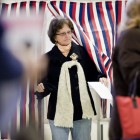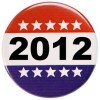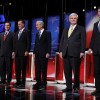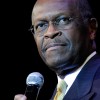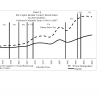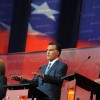Background
The Basics
The New Hampshire primary is a mainstay in American electoral politics. Every four years, voters gather to help determine the Republican and/or Democratic nominee for President. While the state only has 12 electoral votes in 2012 (normally it’s 24, but the Republican National Committee penalized the state party for moving up the event date), the primary’s position as one of the earliest contests gives the state out-sized influence over the nomination process.
Only the Iowa caucuses come before New Hampshire’s primary. Traditionally, New Hampshire’s broad-based primary contest has been seen as a counter-weight to Iowa’s more drawn-out caucus process, which tends to draw a smaller core of party faithful. In the case of the 2012 Republican race, New Hampshire’s electorate is seen to represent the more libertarian-leaning, fiscally conservative wing of the party, while Iowa voters are seen as representing the socially conservative wing of the GOP base.
The Economy And The 2012 Republican Race
As a site focusing on business and the economy, the 2012 First In The Nation Primary is of particular interest to StateImpact. Reflecting the down economy nationwide, the WMUR Granite State Poll found 63 percent of the state’s voters say their major concern is the economy and jobs. That’s compared to 10 percent who cite the budget deficit as their main issue, and three percent who are particularly worried about taxes. This is despite the fact that New Hampshire currently boasts one of the strongest state economies in the country.
Why The Primary Matters To The NH Economy
But there’s more to our interest in the New Hampshire primary than recession-related concerns specific to the 2012 contest. There’s a whole economic ecosystem tied to the First In The Nation primary. While TV ad buys during primary years represent the bulk of candidate spending, researchers found that roughly 2,200 jobs were directly or indirectly tied to the 2000 New Hampshire primary. That year, $83 million went to the state in direct primary spending, and $231 million in combined direct, indirect, and induced spending. The state’s First In The Nation status also makes it a draw for political tourists and candidate supporters from across the country. So while the primary’s not a huge part of New Hampshire’s economy, it’s nonetheless significant.
With that in mind, we’ve collected our economy-related StateImpact coverage of the New Hampshire primary right here for your perusal.
